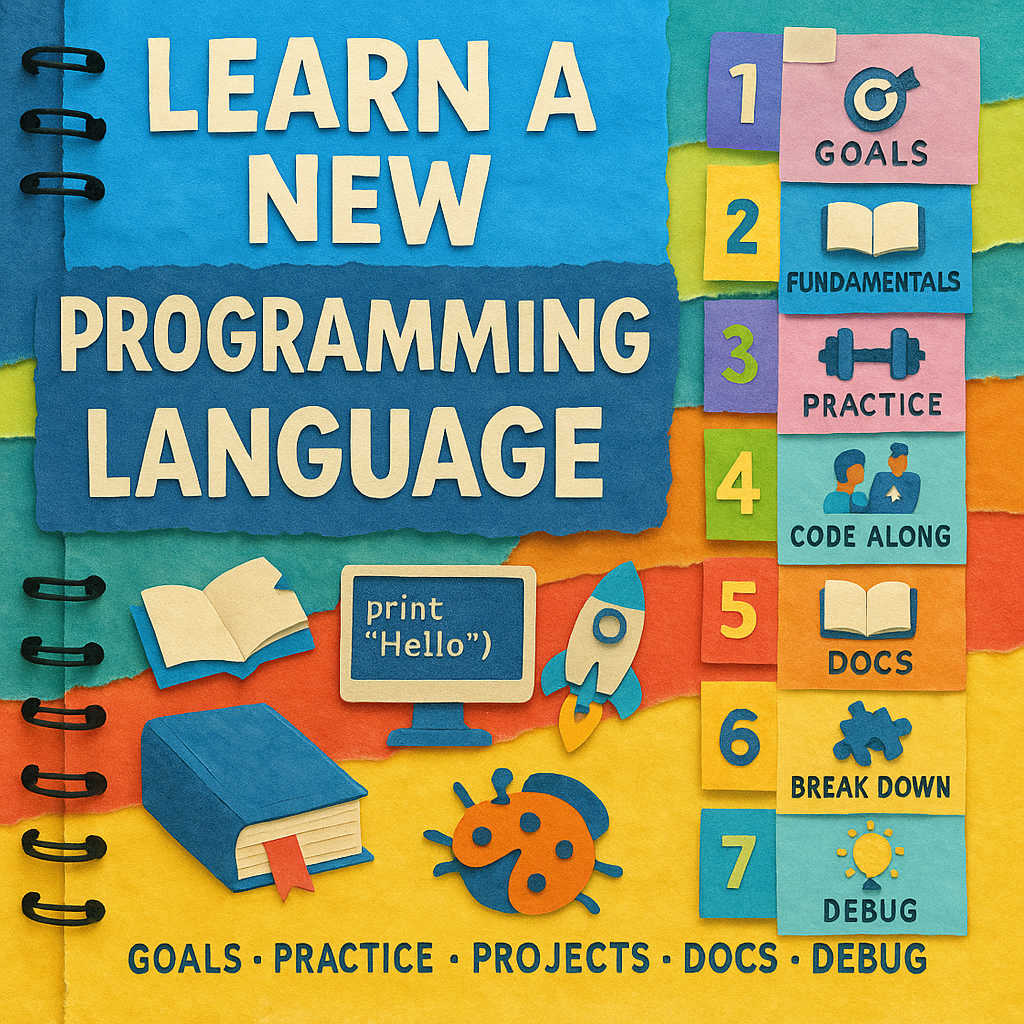Learning a new programming language can be both exciting and challenging. Whether you are a beginner or an experienced programmer, acquiring proficiency in a new language opens up opportunities for personal and professional growth. However, mastering a programming language requires dedication, practice, and a strategic approach. In this article, we will explore some effective tips and tricks to help you learn a new programming language efficiently.
1. Set Clear Goals and Choose the Right Language
Before embarking on your learning journey, clearly define your goals. Determine why you want to learn the new programming language and what you aim to achieve. This will help you stay motivated throughout the process. Additionally, select a language that aligns with your goals and interests. Research different languages, consider their applications, and choose one that suits your needs.
2. Start with Fundamentals
When starting with a new programming language, it’s crucial to establish a strong foundation. Begin by learning the basic syntax, data types, control structures, and functions of the language. Understand how the language handles variables, loops, conditionals, and input/output operations. This fundamental knowledge forms the building blocks for more complex concepts.
3. Practice Regularly
Consistent practice is key to mastering any programming language. Set aside dedicated time each day to practice coding in the new language. Actively engage with coding exercises, tutorials, and projects to reinforce your understanding. Practice not only improves your coding skills but also helps you internalize the language’s syntax and logic.
4. Code Along and Collaborate
To accelerate your learning, code along with tutorials, online courses, or programming books. This interactive approach allows you to follow along and understand the thought process of experienced programmers. Furthermore, seek opportunities to collaborate with fellow learners or join programming communities where you can discuss code, ask questions, and receive feedback. Collaborative learning enhances your understanding and exposes you to different perspectives.
5. Build Projects
Building projects is an effective way to solidify your knowledge and apply what you’ve learned. Start with small projects that gradually increase in complexity. Choose projects that align with your interests and allow you to practice the specific features of the language. Projects provide hands-on experience and help you overcome real-world programming challenges.
6. Read Documentation and Source Code
Become familiar with the official documentation of the programming language. Documentation provides a comprehensive understanding of the language’s features, libraries, and frameworks. Additionally, explore open-source projects written in the language you’re learning. Reading and analyzing source code can teach you valuable techniques, coding standards, and best practices.
7. Break Down Complex Problems
As you progress in your learning journey, you’ll encounter complex programming problems. When faced with a challenging task, break it down into smaller, manageable parts. Analyze the problem, identify its components, and devise a step-by-step plan. Solving complex problems incrementally helps you tackle them more effectively and boosts your problem-solving skills.
8. Embrace Mistakes and Debugging
Making mistakes is an integral part of learning programming languages. Don’t be discouraged by errors or bugs. Instead, see them as learning opportunities. Debugging code helps you understand the language’s nuances and improves your ability to identify and fix issues. Patience and persistence are essential qualities to cultivate during the learning process.
9. Stay Updated and Learn from Projects
Technology evolves rapidly, and programming languages constantly introduce new features and improvements. Stay updated with the latest developments and explore language-specific blogs, forums, and tutorials. Additionally, learn from real-world projects and study how experienced developers leverage the language’s capabilities to solve complex problems. Adopting industry best practices helps you write efficient, maintainable, and scalable code.
Conclusion
Learning a new programming language is an enriching endeavor that requires dedication and perseverance. By setting clear goals, practicing regularly, building projects, and leveraging available resources, you can effectively learn and master a programming language. Embrace challenges, collaborate with others, and stay curious to continuously enhance your programming skills. Remember, learning a new language is a lifelong journey that opens doors to exciting opportunities in the world of programming.

Leave a Reply